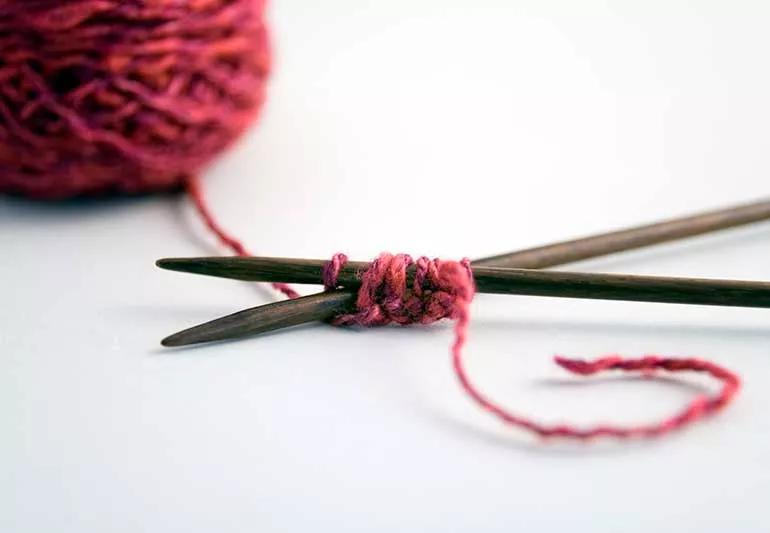There are better — and healthier — ways to be environmentally friendly

Image content: This image is available to view online.
View image online (https://assets.clevelandclinic.org/transform/996974fc-565f-43a0-9b5a-8466a7acda51/Crocheted-Cloth-Reusable-Tampons-588284370-770x533-1_jpg)
Ball and strand of crocheting yarn.
We all want to do our part to help the environment. And seeing the pile-up of used tampons and their wrappers in your trash each month may be leaving you feeling guilty about the waste. That may be why reusable tampons have become such a hot topic in recent years, with an increasing number of people making their own and selling them online.
Advertisement
Cleveland Clinic is a non-profit academic medical center. Advertising on our site helps support our mission. We do not endorse non-Cleveland Clinic products or services. Policy
But are reusable tampons a safe bet for both you and the planet? Unfortunately not, says Ob/Gyn Erica Newlin, MD. She explains why reusable tampons are a trend you should skip, and what you can try instead.
If you search “reusable tampons” on the popular crafting site Etsy, you’ll get an overflow (pun intended) of handmade tampon listings — often with smiling faces or fun patterns.
Currently, there are two popular types of reusable tampons: cloth tampons — which are often rolled pieces of cotton or flannel fabrics — and crocheted tampons, which are made from yarn. The point of these products is to provide alternatives to tampons you get at the drug store and throw out after one use. In theory, you should be able to wash these after every use and then reuse them. This means you should only need to own a couple that you can repurpose for years.
“I respect that people want to be sustainable and I understand they’re worried about certain chemicals that drug store products are treated with, but I think that there’s a lot of risk and a lot of issues with hygiene and cleanliness,” states Dr. Newlin.
Short answer: no. There hasn’t yet been any research conducted on crocheted and cloth tampons to see how they impact your health over the long term.
Advertisement
“When you think about tampons, it’s something that’s in the vagina next to the cervix, which is pretty much the gateway to the uterus,” says Dr. Newlin. “And when something’s sitting in the vagina, it’s certainly helping soak up the period blood, but also soaking up all the bacteria — both good and bad — that lives in the vagina.”
It’s exactly for this reason that tampons and period products are considered a medical device and need to be developed with care. Any manufacturer that wants to sell their tampons on store shelves has to go through a review. In the United States, the Food and Drug Administration (FDA) reviews the products’ absorbency and effectiveness, along with checking if they might promote growth of certain harmful bacteria.
Reusable tampons of any kind, however, do not go through a rigorous process like this. So, you quite literally don’t know what you’re putting inside of your body. In 2020, the FDA even discouraged the use of reusable tampons for this very reason.
“Just because something is homemade, that doesn’t mean it’s better and it doesn’t mean that it can’t be exposed to certain chemicals in someone’s home,” says Dr. Newlin.
Another question you may be asking: How the heck would you even clean these things?
Reusable tampons would need to be washed after each use, but there’s no guarantee that this would thoroughly clean and sanitize them, says Dr. Newlin.
“Bacteria love nice, warm, moist places where they can live,” she continues. “Especially when we’re talking about crocheted tampons, there’s so many nooks and crannies in something that’s crocheted, it’s just going to be impossible to keep clean. It’s almost kind of a ladder that bacteria can walk up or get trapped in.”
That bacteria can pose a serious issue to your health. If you’re exposed to a buildup of harmful bacteria, it can lead to toxic shock syndrome (TSS). Concern over TSS is why you should never leave your tampon in for longer than eight hours.
Using reusable tampons may put you at higher risk for TSS. “Most over-the-counter tampons that you’d buy in a drugstore are treated with certain things that help prevent that bacterial growth,” Dr. Newlin explains. “The risk is never zero for TSS, but it’s much, much lower.”
Luckily, there are plenty of other ways to save the environment while also having a healthy period routine.
Dr. Newlin recommends eco-friendly alternatives like:
Advertisement
You have plenty of options when considering the right menstrual products for you. And if a product that’s kind to the environment is essential, then opt for a reusable cup or underwear. Reusable tampons come with too much risk to your health. But if you want to switch menstrual products and aren’t sure what’s best for you, talk to a healthcare provider or gynecologist about your options.
Advertisement

Delivered every Tuesday!
Sign up for our Health Essentials emails for expert guidance on nutrition, fitness, sleep, skin care and more
Learn more about our editorial process.
Advertisement
It depends on your menstrual flow, and a little trial and error
Yes, with the right absorbency level and maximum time-frame
From using one at night to how often you should change them
They won’t make your cramps worse or stretch out your vagina!
In addition to toxic shock syndrome, you risk other vaginal infections
Key steps include picking the right level of absorbency and inserting it at the correct angle
It can get squished and lodged, but not lost
The truth behind this “hygiene” illusion
Type 2 diabetes isn’t inevitable with these dietary changes
Applying a hot or cold compress can help with pain
Pump up your iron intake with foods like tuna, tofu and turkey